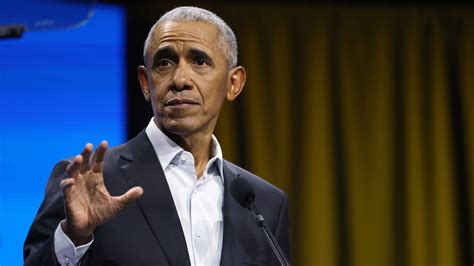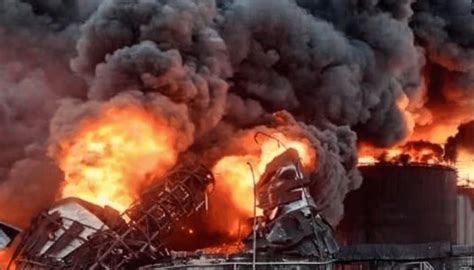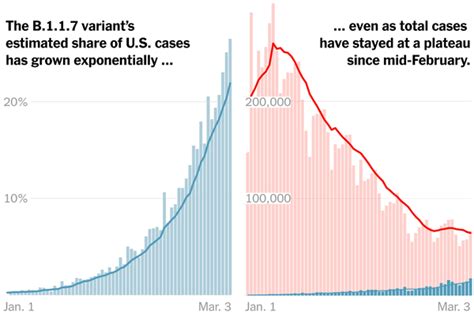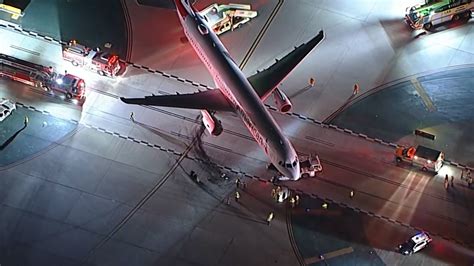
Two Secret Service agents have been temporarily relieved of their duties following an alleged altercation that occurred near former President Barack Obama’s residence in the upscale Kalama neighborhood of Honolulu, Hawaii. The agents, who were part of the former president’s security detail, were suspended pending an internal investigation into the incident, which reportedly involved a physical dispute with another individual.
The incident, which took place early Monday morning, has raised concerns about the conduct of security personnel responsible for protecting former high-ranking government officials. While the details surrounding the brawl remain unclear, initial reports suggest that at least one of the agents was armed at the time of the incident. The Secret Service confirmed the suspensions in a statement, asserting that the agency is “aware of an off-duty incident involving two of our employees” and emphasizing its commitment to “swiftly assess the facts and take appropriate action.”
According to sources familiar with the matter, the altercation began as a verbal disagreement that escalated into a physical confrontation. Local police were called to the scene, but no arrests were made. The Secret Service has launched its own internal investigation to determine the full extent of the agents’ involvement and whether their actions violated agency policy or ethical standards.
The identities of the suspended agents have not been publicly released, and the Secret Service has declined to comment further on the specifics of the incident, citing the ongoing investigation. The investigation will focus on several key aspects, including the circumstances that led to the altercation, whether alcohol consumption played a role, and whether the agents’ conduct compromised security protocols or reflected negatively on the agency’s reputation.
The incident has drawn attention to the demanding nature of Secret Service work and the challenges faced by agents who are responsible for protecting high-profile individuals, often in high-pressure environments. The Secret Service is tasked with providing security for current and former presidents, vice presidents, their families, and other designated individuals. The job requires long hours, constant vigilance, and the ability to make split-second decisions in potentially dangerous situations.
The suspension of the two agents comes at a time when the Secret Service is already facing scrutiny over several recent security lapses and personnel issues. In recent years, the agency has been plagued by incidents ranging from security breaches at the White House to allegations of misconduct by agents on overseas assignments. These incidents have raised questions about the agency’s training, oversight, and accountability measures.
The Secret Service has undergone several reforms in recent years in an effort to address these concerns. These reforms have included enhanced training programs, stricter disciplinary policies, and increased oversight of agent conduct. However, the latest incident involving the agents in Hawaii suggests that the agency continues to face challenges in maintaining the highest standards of professionalism and conduct among its workforce.
The internal investigation into the incident is expected to be completed within the coming weeks. Depending on the findings, the agents could face a range of disciplinary actions, including suspension without pay, demotion, or termination. The Secret Service has stated that it is committed to holding its employees accountable for their actions and that it will take appropriate measures to ensure that all agents adhere to the agency’s code of conduct.
The incident also raises questions about the potential impact on the security arrangements for former President Obama and his family. While the Secret Service has not indicated that the incident has compromised Obama’s security, it is likely that the agency will review its security protocols to ensure that all necessary precautions are in place. The Secret Service has a long history of protecting former presidents and their families, and it is committed to providing them with the highest level of security.
The incident serves as a reminder of the critical role that the Secret Service plays in protecting the nation’s leaders and the importance of maintaining the highest standards of professionalism and conduct among its agents. The agency’s reputation is built on its ability to provide effective security while adhering to the highest ethical standards. When agents fail to meet these standards, it can undermine public trust and confidence in the agency.
The Secret Service is a highly selective agency, and its agents undergo rigorous training and screening before being assigned to protect high-profile individuals. The agency has a strict code of conduct that governs the behavior of its agents, both on and off duty. Agents are expected to uphold the highest standards of professionalism, integrity, and ethical conduct at all times.
The agency also has a robust system for investigating allegations of misconduct by its agents. When allegations are made, the agency conducts a thorough investigation to determine the facts and to take appropriate disciplinary action. The Secret Service is committed to holding its employees accountable for their actions and to ensuring that all agents adhere to the agency’s code of conduct.
The incident involving the agents in Hawaii is a setback for the Secret Service, but it is also an opportunity for the agency to reaffirm its commitment to maintaining the highest standards of professionalism and conduct among its agents. The agency’s leadership has stated that it is taking the incident seriously and that it will take all necessary steps to ensure that similar incidents do not occur in the future.
The Secret Service is a vital part of the nation’s security apparatus, and its agents play a critical role in protecting the country’s leaders. The agency’s ability to fulfill its mission depends on the trust and confidence of the public. When agents fail to meet the agency’s standards of conduct, it can undermine that trust and confidence. The Secret Service must take all necessary steps to ensure that its agents adhere to the highest standards of professionalism and ethical conduct at all times.
In light of the recent incident, there is renewed scrutiny of the pressures and demands placed on Secret Service agents, who often work long hours in stressful conditions. The need for adequate support systems, including mental health resources and stress management programs, has been highlighted as crucial for maintaining the well-being and effectiveness of these agents.
Furthermore, the incident has prompted discussions about the Secret Service’s internal culture and the need for fostering an environment that promotes accountability, ethical decision-making, and respect for the communities in which agents operate. The agency’s leadership is expected to address these concerns as part of its ongoing efforts to strengthen the Secret Service and ensure its continued effectiveness in protecting the nation’s leaders.
The investigation into the Hawaii incident is ongoing, and further details are expected to emerge in the coming weeks. The outcome of the investigation will have significant implications for the agents involved, as well as for the Secret Service as a whole. The agency is committed to conducting a thorough and impartial investigation and to taking appropriate action based on the findings.
The incident serves as a reminder of the challenges and responsibilities that come with protecting high-profile individuals and the importance of maintaining the highest standards of professionalism and conduct among those who are entrusted with this critical mission.
Further Details and Context
The Secret Service, officially known as the United States Secret Service (USSS), is a federal law enforcement agency under the Department of Homeland Security. Its origins trace back to 1865 when it was initially founded as a bureau of the Department of the Treasury to combat the counterfeiting of U.S. currency. Over the years, its mission expanded significantly.
In the wake of President William McKinley’s assassination in 1901, the Secret Service formally took on the role of protecting the President of the United States. This responsibility was later extended to include the President’s family, the Vice President, former Presidents and their spouses, visiting heads of state, and other designated individuals.
The Secret Service’s protective operations are multifaceted. They involve threat assessment, protective intelligence, physical security measures, and the deployment of specially trained agents who are equipped to handle a wide range of potential threats. Agents undergo rigorous training in areas such as firearms proficiency, defensive tactics, emergency medicine, and crisis management.
In addition to its protective duties, the Secret Service continues to investigate financial crimes, including counterfeiting, fraud, and identity theft. This dual mission reflects the agency’s historical roots and its evolving role in safeguarding both the nation’s leaders and its financial system.
The demanding nature of Secret Service work often places significant strain on agents and their families. Agents are frequently required to travel extensively, work long and irregular hours, and maintain a high level of vigilance at all times. The pressure to perform flawlessly in high-stakes situations can take a toll on their physical and mental well-being.
The Secret Service has implemented various programs and initiatives to support its agents, including employee assistance programs, stress management training, and peer support networks. However, some critics argue that these efforts are insufficient to address the underlying challenges faced by agents.
The agency has also faced criticism in recent years for a number of security lapses and misconduct incidents. These incidents have raised questions about the agency’s training, oversight, and accountability measures. In response, the Secret Service has implemented reforms aimed at strengthening its operations and improving agent conduct.
The recent incident involving the two agents in Hawaii underscores the ongoing challenges faced by the Secret Service in maintaining the highest standards of professionalism and ethical conduct among its workforce. The agency is committed to addressing these challenges and ensuring that its agents are equipped to carry out their mission effectively and responsibly.
The security of former presidents and their families is a complex and costly undertaking. The Secret Service is responsible for providing lifetime protection to former presidents and their spouses, unless they decline it. This protection extends to their minor children until they reach the age of 16.
The cost of protecting former presidents varies depending on their travel patterns, security needs, and other factors. In recent years, the cost of protecting former presidents has come under increasing scrutiny, with some lawmakers calling for reforms to reduce the financial burden on taxpayers.
The Secret Service has defended its protective operations, arguing that they are essential for ensuring the safety and security of former presidents and their families. The agency notes that former presidents often remain high-profile figures who are at risk of being targeted by individuals or groups who pose a threat to their safety.
The incident in Hawaii is likely to fuel further debate about the cost and effectiveness of protecting former presidents. Some critics may argue that the incident demonstrates the need for stricter oversight of Secret Service agents and a more rigorous vetting process to ensure that only the most qualified individuals are assigned to protective details.
Others may argue that the incident is an isolated case and that it should not be used to justify sweeping changes to the Secret Service’s protective operations. They may argue that the agency has a long and successful track record of protecting former presidents and that it should be given the resources and support it needs to continue carrying out this vital mission.
The Secret Service’s mission is critical to national security and the safety of the nation’s leaders. The agency’s agents are dedicated professionals who work tirelessly to protect those they are sworn to serve. While the agency has faced challenges in recent years, it remains committed to upholding the highest standards of professionalism and ethical conduct.
The incident in Hawaii serves as a reminder of the importance of ongoing training, oversight, and accountability within the Secret Service. The agency must continue to invest in its agents and ensure that they are equipped to carry out their mission effectively and responsibly.
The outcome of the investigation into the Hawaii incident will have significant implications for the agents involved and for the Secret Service as a whole. The agency is committed to conducting a thorough and impartial investigation and to taking appropriate action based on the findings. The public will be watching closely to see how the Secret Service handles this matter and whether it can restore confidence in its ability to protect the nation’s leaders.
The incident has also raised questions about the potential impact of alcohol consumption on the behavior of Secret Service agents. The agency has strict policies regarding alcohol consumption, and agents are expected to adhere to these policies at all times.
The Secret Service’s policies prohibit agents from consuming alcohol while on duty or while carrying a firearm. Agents are also prohibited from consuming alcohol to excess while off duty.
The agency’s policies are designed to ensure that agents are always able to perform their duties safely and effectively. Alcohol consumption can impair judgment, reduce reaction time, and increase the risk of accidents or other incidents.
The investigation into the Hawaii incident will likely examine whether alcohol consumption played a role in the altercation. If it is determined that the agents were under the influence of alcohol at the time of the incident, they could face disciplinary action, including suspension or termination.
The Secret Service has a zero-tolerance policy for alcohol-related misconduct. The agency is committed to holding its agents accountable for their actions and to ensuring that they adhere to the agency’s strict policies regarding alcohol consumption.
The incident in Hawaii is a reminder of the importance of responsible alcohol consumption and the potential consequences of alcohol-related misconduct. The Secret Service must continue to emphasize the importance of responsible alcohol consumption to its agents and to enforce its policies rigorously.
The incident involving the Secret Service agents near former President Obama’s residence has also brought attention to the security measures in place for former presidents and their families. The Secret Service provides around-the-clock protection to former presidents and their families, regardless of their location.
The security measures in place for former presidents vary depending on their individual needs and circumstances. The Secret Service works closely with former presidents and their families to develop a security plan that is tailored to their specific needs.
The security plan may include physical security measures, such as security fencing, surveillance cameras, and security personnel. It may also include operational security measures, such as background checks, threat assessments, and travel restrictions.
The Secret Service’s goal is to provide former presidents and their families with a safe and secure environment in which they can live their lives without fear of harm. The agency takes its responsibility to protect former presidents very seriously and is committed to providing them with the highest level of security.
The incident in Hawaii has not changed the Secret Service’s commitment to protecting former presidents and their families. The agency is continuing to provide around-the-clock protection to former presidents and their families, and it is constantly reviewing and updating its security measures to ensure that they remain effective.
The Secret Service is a highly professional organization that is dedicated to protecting the nation’s leaders. The agency’s agents are well-trained and highly skilled, and they are committed to upholding the highest standards of professionalism and ethical conduct.
The incident in Hawaii is a setback for the Secret Service, but it is also an opportunity for the agency to reaffirm its commitment to its mission and to its values. The agency is committed to learning from this incident and to taking steps to prevent similar incidents from occurring in the future.
The Secret Service’s reputation is built on its ability to provide effective security while adhering to the highest ethical standards. When agents fail to meet these standards, it can undermine public trust and confidence in the agency. The Secret Service must take all necessary steps to ensure that its agents adhere to the highest standards of professionalism and ethical conduct at all times.
The agency is also facing increased scrutiny over its diversity and inclusion efforts. In recent years, there have been calls for the Secret Service to increase the representation of women and minorities in its ranks. The agency has taken steps to address these concerns, but some critics argue that more needs to be done.
The Secret Service is committed to creating a diverse and inclusive workforce that reflects the diversity of the nation it serves. The agency has implemented a number of initiatives to recruit and retain women and minorities, including targeted recruitment efforts, mentorship programs, and diversity training.
The Secret Service recognizes that a diverse workforce is essential for its success. A diverse workforce brings a variety of perspectives and experiences to the table, which can help the agency to better understand and respond to the challenges it faces.
The agency is committed to continuing its efforts to promote diversity and inclusion in its workforce. The Secret Service believes that a diverse workforce is not only the right thing to do, but it is also the smart thing to do.
Frequently Asked Questions (FAQ)
1. What exactly happened involving the Secret Service agents in Hawaii?
According to reports, two Secret Service agents assigned to the security detail of former President Barack Obama were suspended after an alleged off-duty altercation occurred near Obama’s residence in Honolulu. The incident reportedly involved a physical dispute with another individual, and local police were called to the scene. However, no arrests were made. The Secret Service has launched an internal investigation to determine the full details and whether any policies or ethical standards were violated. The exact nature of the disagreement is still under investigation.
2. Why were the agents suspended?
The agents were suspended pending the outcome of an internal investigation. As stated by the Secret Service, they are “aware of an off-duty incident involving two of our employees” and are committed to “swiftly assess[ing] the facts and take[ing] appropriate action.” Suspension is a standard procedure when allegations of misconduct arise, allowing the agency to conduct a thorough investigation without the agents actively performing their duties, particularly given their access to sensitive information and security responsibilities. The suspension helps ensure impartiality and maintains public trust.
3. Did this incident compromise former President Obama’s security?
There is no indication that former President Obama’s security was directly compromised as a result of this incident. The agents were reportedly off-duty at the time of the altercation. However, the Secret Service will likely review its security protocols to ensure that all necessary precautions are in place. The incident raises concerns about the judgment and conduct of security personnel, which indirectly affects the overall effectiveness of the security detail. The Secret Service takes the security of former presidents very seriously.
4. What are the potential consequences for the agents involved?
The consequences for the agents will depend on the findings of the internal investigation. Potential disciplinary actions range from a written reprimand to suspension without pay, demotion, or even termination. The severity of the punishment will be determined by the nature of the misconduct, the extent of their involvement, and any prior disciplinary history. If the investigation reveals criminal conduct, the agents could also face criminal charges. The Secret Service is committed to holding its employees accountable for their actions and ensuring that all agents adhere to the agency’s code of conduct.
5. How does this incident reflect on the Secret Service as a whole?
This incident is a setback for the Secret Service, as it raises questions about the agency’s training, oversight, and accountability measures. It adds to the scrutiny the agency has faced in recent years due to other security lapses and personnel issues. While the incident involves only two agents, it can undermine public trust and confidence in the agency’s ability to protect the nation’s leaders. The Secret Service must take steps to address the underlying issues that contributed to the incident and reaffirm its commitment to maintaining the highest standards of professionalism and ethical conduct among its agents. It also highlights the need for adequate support systems for agents, given the demanding nature of their work.









